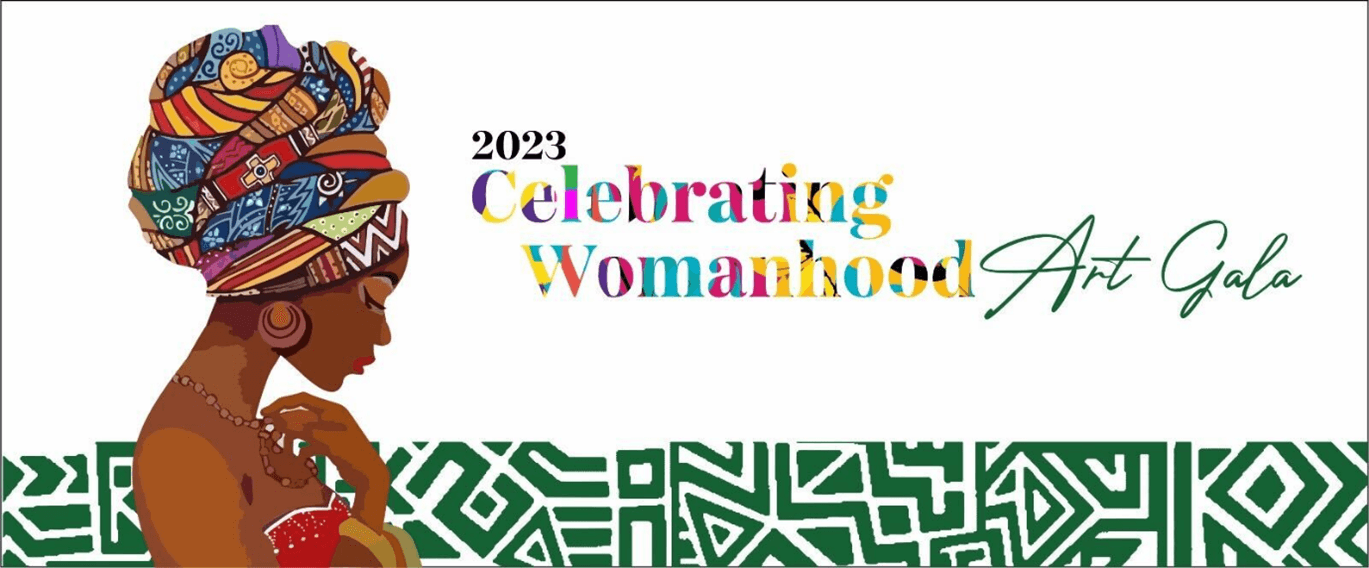[ad_1]
By Dabri Olohije Ohanu and Oluoma Omeje (Lead Writers)
Listening to women’s voices, needs and unique perspectives is paramount to improving access to quality, respectful maternal healthcare.
In 2021, Nigeria Health Watch conceptualised the Celebrating Womanhood Art Gala, as a “Health Meets Art” initiative aimed at raising greater awareness about maternal health issues, among a broader audience outside the health sector, providing a forum for critical maternal health issues to be discussed through various forms of creative arts.
Beyond storytelling, artistic expressions have a huge role to play in education, expression and especially in the communication of important messages that evoke emotions beyond words, hence the initiative to use arts in conveying maternal health messages to stakeholders.
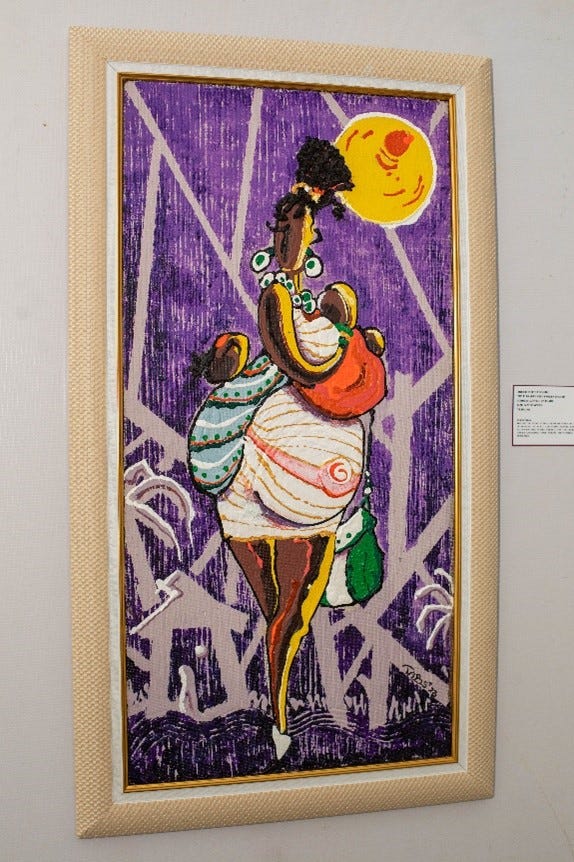
On Friday, the 24th of March 2023, Nigeria Health Watch convened the second edition of the Celebrating Womanhood Art Gala themed “Elevating Women’s Voices for Quality Maternal Healthcare”. The Art Gala brought together multi-sectoral stakeholders from the health sector and beyond to advocate for the inclusion of women’s perspectives and experiences with maternity care in the design and implementation of sustainable policies and programmes to improve maternal health.
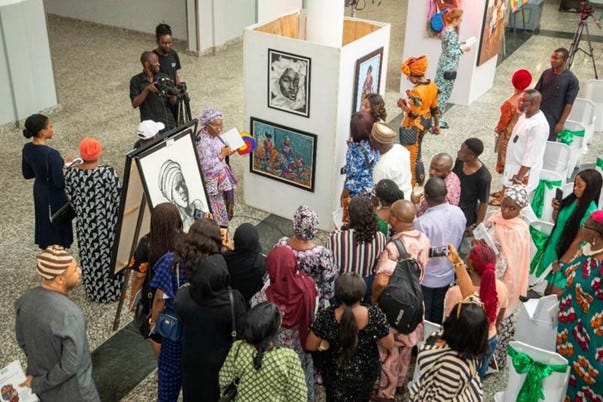
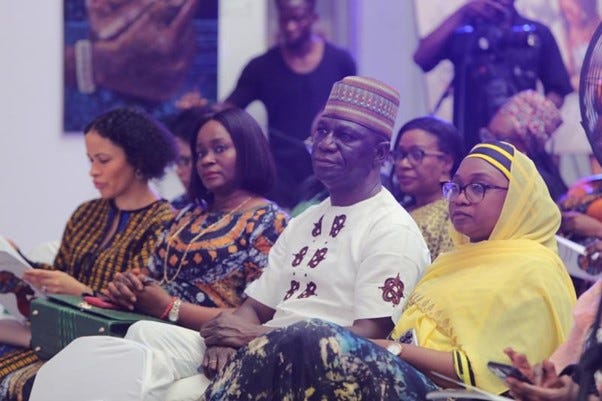
The art gala began with a walk-through session, which served as a catalyst for discussions about maternal health. Nigeria Health Watch collaborated with the National Gallery of Art (NGA) and the Female Artist Association of Nigeria (FEAAN) to send out a call for art submissions and relied on their expertise for the selection process subsequently. In addition, the artworks were jointly curated with technical support from both organisations and featured diverse and unique representations of the theme of the gala through varying forms of art.
At the Gala, Curator/Board of Trustees Secretary of the Female Artist Association of Nigeria (FEAAN) Ngozi Akande (Ph.D) led the guests through a guided tour of the art pieces providing an opportunity for guests to engage and interact with the artwork on display.
The various art pieces displayed at the art gala included paintings and photographs that illustrated the challenges faced by women during pregnancy and childbirth.
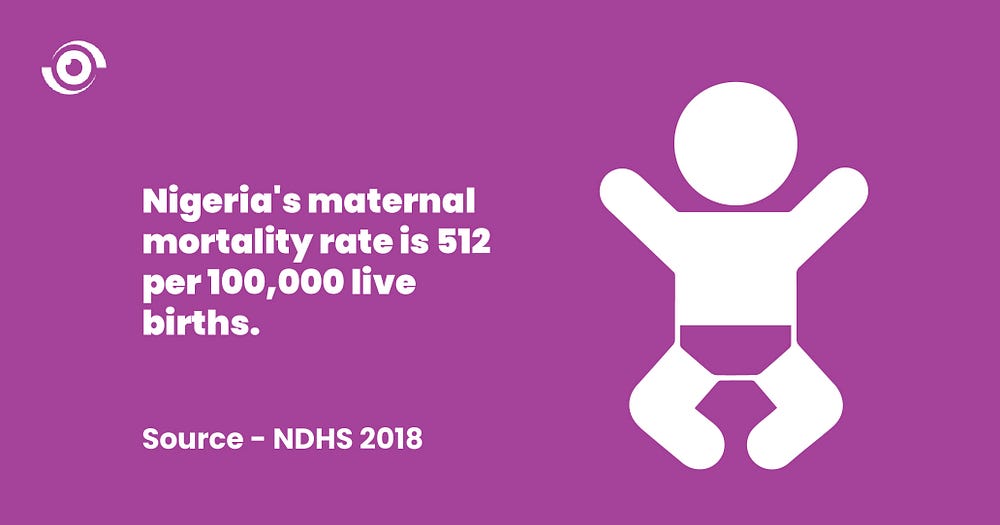
From brushstrokes to change
A key theme that emerged from the event was the importance of social and political engagement for policy action. In her opening remarks, Vivianne Ihekweazu, the Managing Director, Nigeria Health Watch emphasised this stating that a “broader social and political engagement and focused policy action is critical to improving maternal health outcomes”.
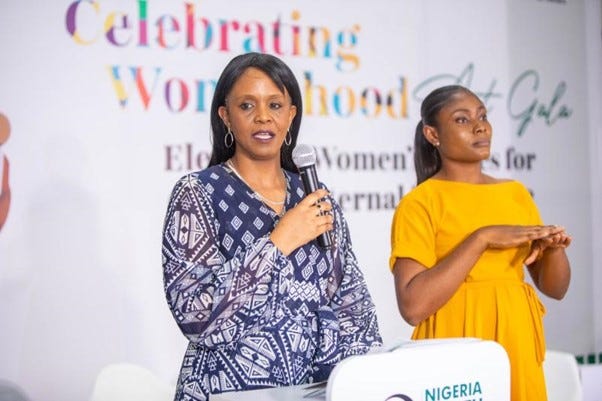
This statement highlighted the need for collaborative efforts between maternal health initiatives, policymakers, and other stakeholders to address the root causes of poor maternal health outcomes. Stating further, she spoke on the need to be intentional about integrating women’s voices in quality health improvements and “there needs to be a more systematic process to gather and capture women’s voices and experiences”.
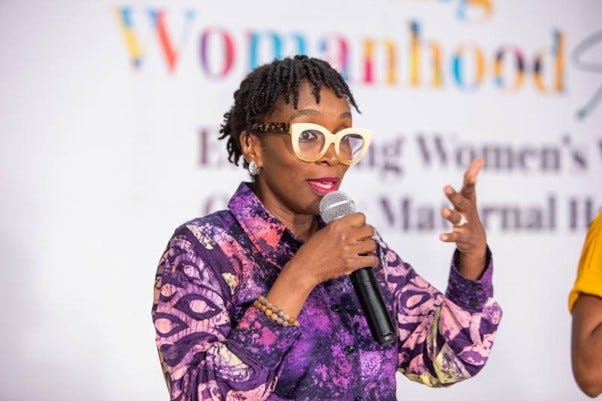
There is so much at stake when women’s voices are ignored and Iyadunni Olubode, Director of Programs Nigeria, MSD for Mothers implored all invited guests to “work together to institute systems that seek women’s perspectives”. This call to action explained the importance of centering women’s voices in maternal health and most importantly, “if we are to have any meaningful understanding of the woman’s clinical experience, and if that is supposed to shape how we offer a woman care, if we are supposed to encourage and sustain women going into facilities to receive care, we need to understand how they perceive the care that they receive and that’s why it’s very important that we listen to women”.
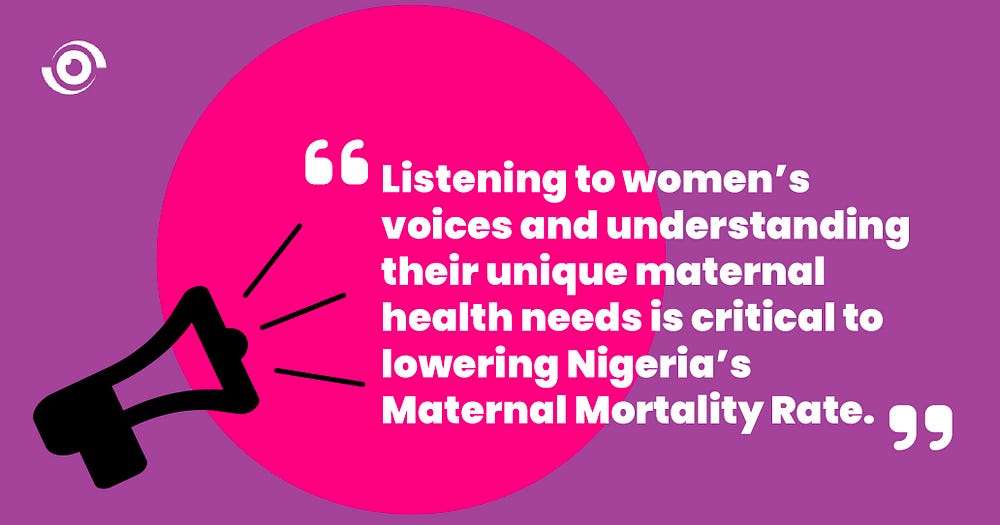
Curated cconversations for Maternal Health
In addition to the art exhibition, the gala also included a session called “Curated Conversations” where four organisations implementing maternal health projects spoke about their efforts to elevate women’s voices in maternal health.
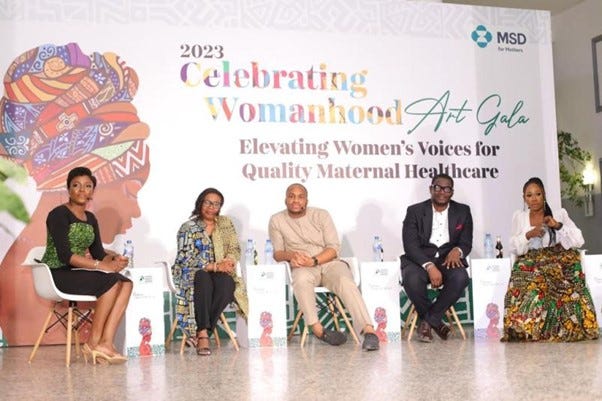
The session, which was moderated by Kemisola Agbaoye, Director of Programmes, Nigeria Health Watch was comprised of Chibugo Okoli (Jhpiego) representing RICOM3 Project, Uche Igbokwe (SCIDaR) representing Smiles for Mothers Project, Emeka Okafor (Society for Family Health) representing IntegratE Project, and Jennifer Adebambo representing White Ribbon Alliance Nigeria.

Dr Okoli, who worked in a consortium with mDoc and Health Strategy and Delivery Foundation (HSDF) to implement the ‘Reducing Indirect Causes of Maternal Mortality and Morbidity’ (RICOM3) project, shared how in the implementation of the project, women’s perspective was prioritised at the center of execution; “we selected a group of women randomly, about 600 of them and actually carried out a survey asking them what they knew about these risks factors. We also used photo voice to help capture stories from the women who participated in the initiative,” she added.
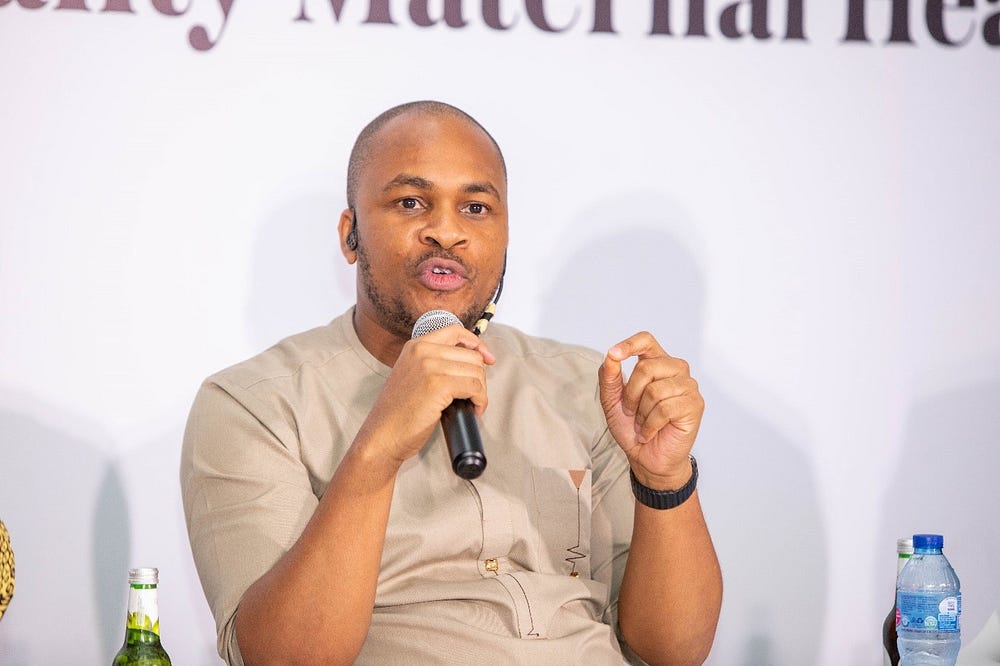
Similarly, Uche Igbokwe shared how Smiles for Mothers project used human-centered design by working with communities to develop patient literacy materials to inform women about the risks they face at childbirth. The project, which is aimed at reducing maternal deaths, with a focus on postpartum haemorrhage worked with the women to design the materials tailored to their specific needs. “From that perspective, we found a few things; there were a lot of issues with the quality of the medications that were being provided. So, we leveraged a new WHO recommendation at the time, that provided options for more drugs to be used to prevent excessive bleeding after childbirth”.
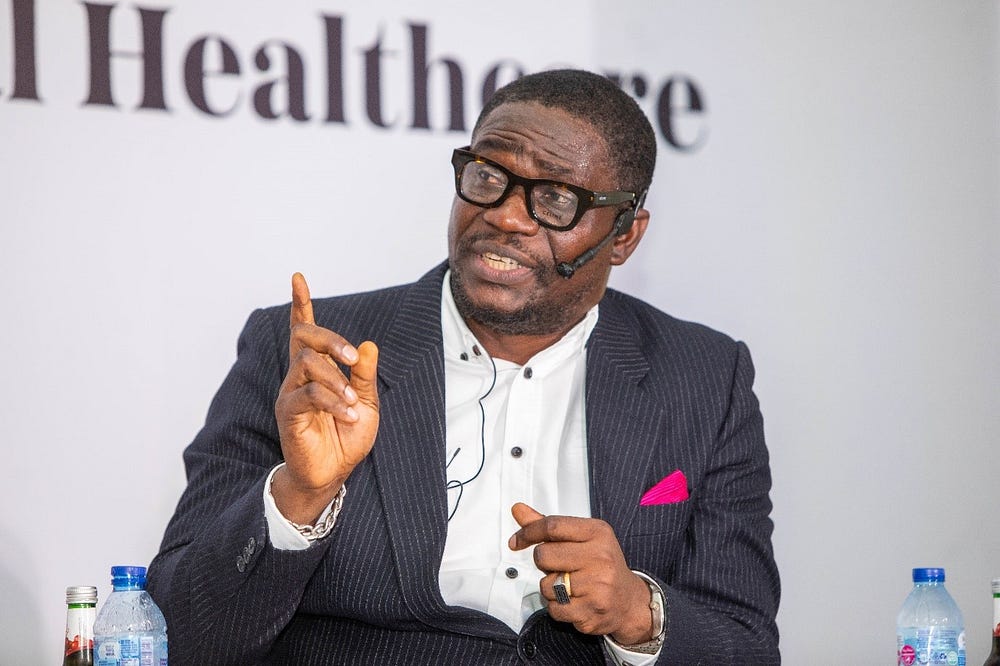
For the IntegratE Project, Emeka Okafor shared how listening to women’s voices impacted the programme by expanding access and options available for family planning services. “We continue putting the voices of women front and centre…We have a forum that we call the community dialogue, where we sit with women, and find out what they think about the services that they are receiving”.
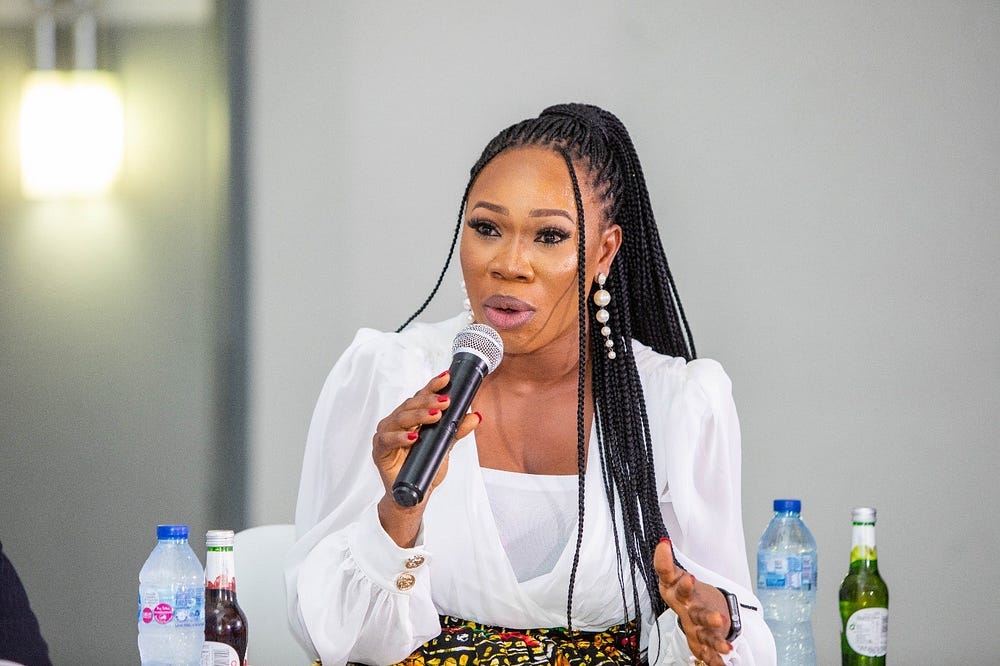
The Self Care Network project prioritised women’s selfcare by giving them the ability and the power of choice. “I saw one rather young lady, sitting down, and she was literally holding her baby and I was like, I’m tired, let me just sit near her and I asked her, how are you doing?” for Jennifer from White Ribbon Alliance Nigeria this instance was an opportunity to listen to a woman’s voice.
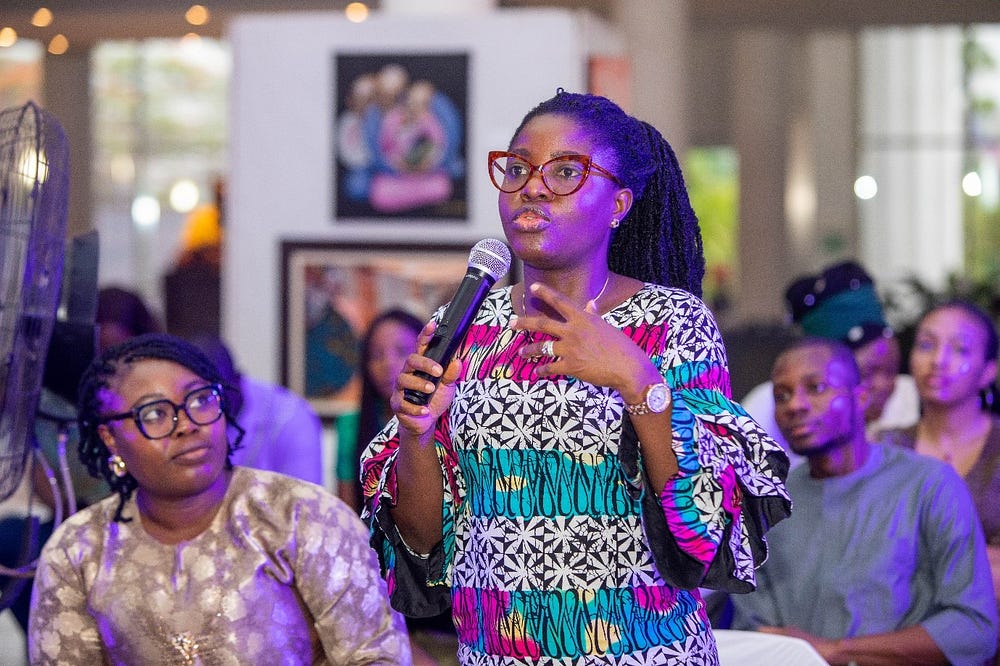
The Self Care Network project prioritised women’s selfcare by giving them the ability and the power of choice. “I saw one rather young lady, sitting down, and she was literally holding her baby and I was like, I’m tired, let me just sit near her and I asked her, how are you doing?” for Jennifer from White Ribbon Alliance Nigeria this instance was an opportunity to listen to a woman’s voice.
The session was an important opportunity for partners to share their experiences and learn from each other. After the session, guests were allowed the opportunity to share how they had experienced the theme of the gala. Adebisi Adedoyin from the Smiles for Mothers project shared a unique story of a man speaking up for her. She said, “my daughter was barely a year old at the time and I was having issues with support. I needed to move closer to my husband, I requested one month to work from home and my male boss granted the request almost immediately”.
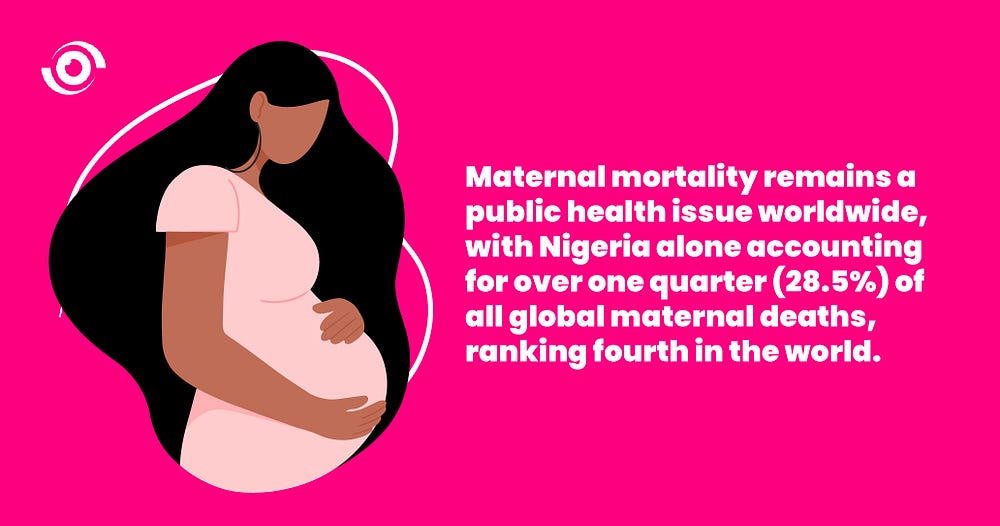
Partnerships for improved Maternal Healthcare
One of the highlights of the art gala was the “Voice it Up” session that provided a creative and innovative way to raise awareness and promote the importance of maternal health. The session brought together development partners — Options Consultancy Services Limited, Society for Family Health (SFH), The Challenge Initiative and United Nations Population Fund (UNFPA) — who are incorporating women’s voices and perspectives, as well as community needs, into their policies and programme designs. Partner programmes were identified, and art pieces were commissioned through a collaborative effort.
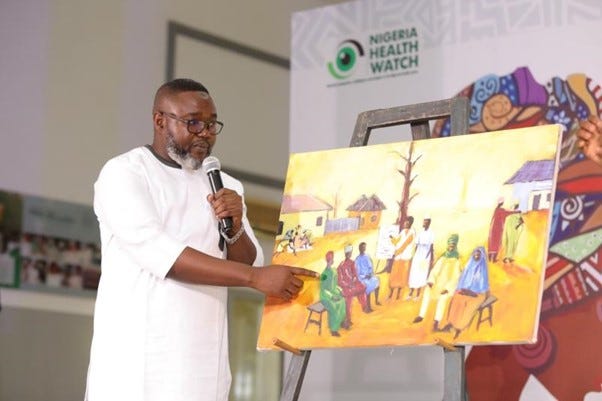
One of the paintings titled Mothers Alive, Babies Alive, depicted a typical Community Maternal and Perinatal Death Surveillance Review (cMPDSR) meeting, through which the Options Consultancy Services programme E4A-MamaYe seeks to improve accountability for maternal deaths at the community level. Guests had the unusual opportunity to go on a visual journey to Katsina, Kaduna, Kano, Yobe, Jigawa, and Zamfara, when Dr. Moshood Ojo Salawu, Senior MPDSR Advisor, explained how the perspectives of women and communities were incorporated into community-based programmes aimed at reducing maternal deaths.
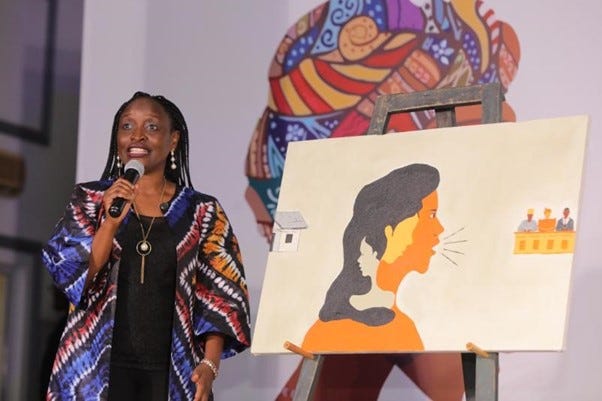
Similarly, Dorcas Akila, Programme Manager, The Challenge Initiative also highlighted how their general approach for implementing their projects involves putting women at the forefront of advocacy to high-level stakeholders. The TCI project, through partnership with the state government, Ministry of Health and Primary Health Care Department is building the capacity of women on social mobilisation and advocacy. Based on this skill women have been given a voice to canvass for services that will enable them to access health care services. The transformation from her suppression to confidence was portrayed in a painting titled “Voice of my inner woman”.

“ A Girl with a Plan” was the painting presented by Hannatu John, Programmer at Adolescents360 Amplify, Society for Family Health (SFH). She elaborated on how the girl-centered approach was utilised to support girls to identify and achieve their goals by talking to their healthcare provider and adopting modern contraception.
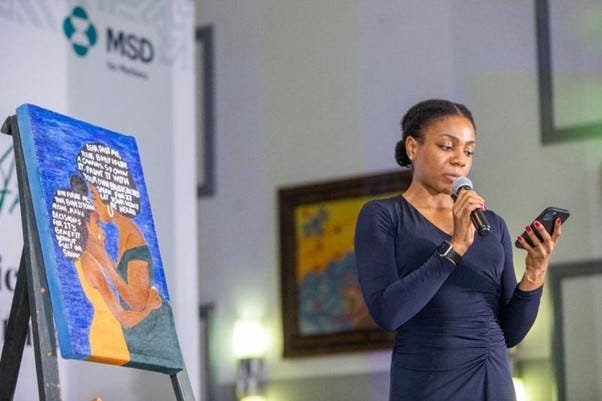
Chiazam Onyenso, Knowledge Management Analyst at United Nations Population Fund (UNFPA) shared how the “Bodily Autonomy: My Body is My Own” report kept women informed on the authority they have to make decisions in matters that relate to them and their bodies through a painting titled “Your Body, Your Choice”. She also highlighted that men and boys must be part of the conversation if progress on women’s health is to be made.
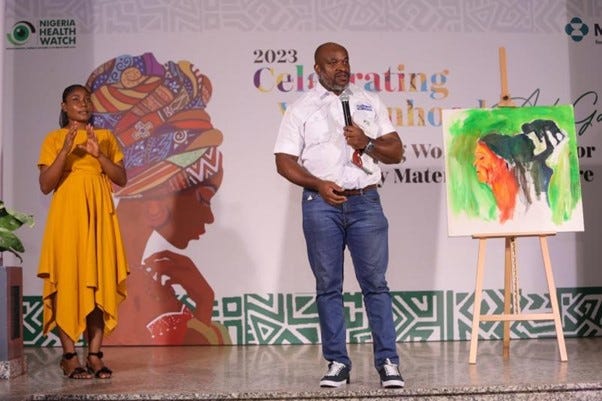
While it’s crucial to prioritise women’s input in maternal health initiatives, men also have a vital role to play in elevating women’s voices. Charles Usie, Country Director PLAN International Nigeria in his reflection shared that for him “elevating women’s voices was more than just fancy titles, it is a conviction that influences our everyday lifestyle.” At Plan International, we speak about it; we act on it and we are passionate about it. Because of our mandate as an organisation. Women face unique challenges that must be given adequate attention. Elevating women’s voices is not just a good thing to do, it is the right thing to do”.
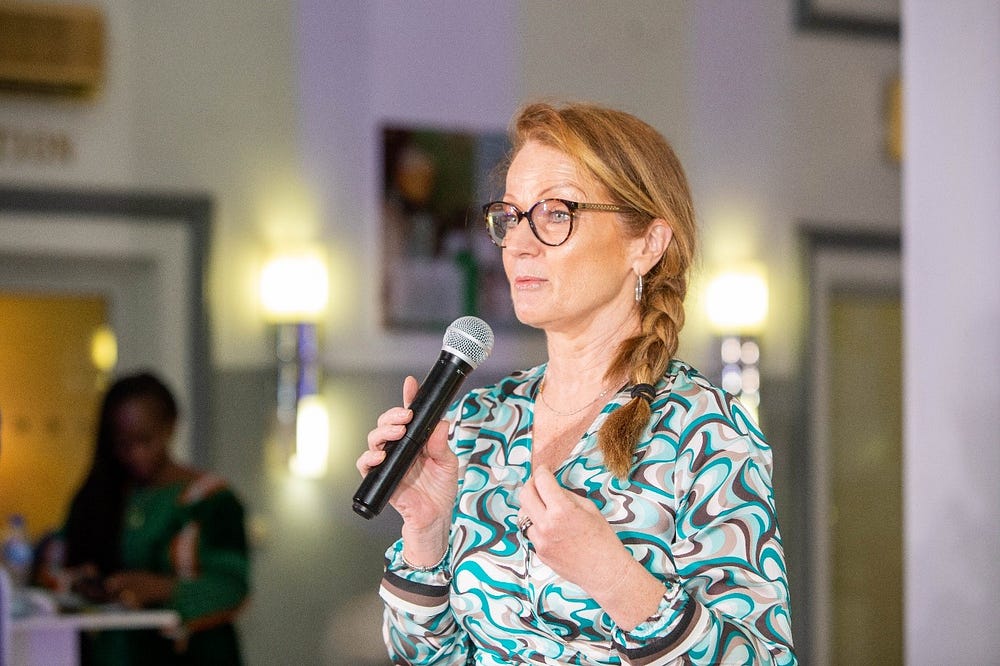
Ulla Mueller the Country Representative of UNPFA also shared her personal thoughts on the theme of the event, particularly around the discussions and stories. “The stories shared would be a constant reminder of how many women die every single day while giving birth. It is left for us to “use the momentum of this evening to change the story about Nigeria’s maternal health”.
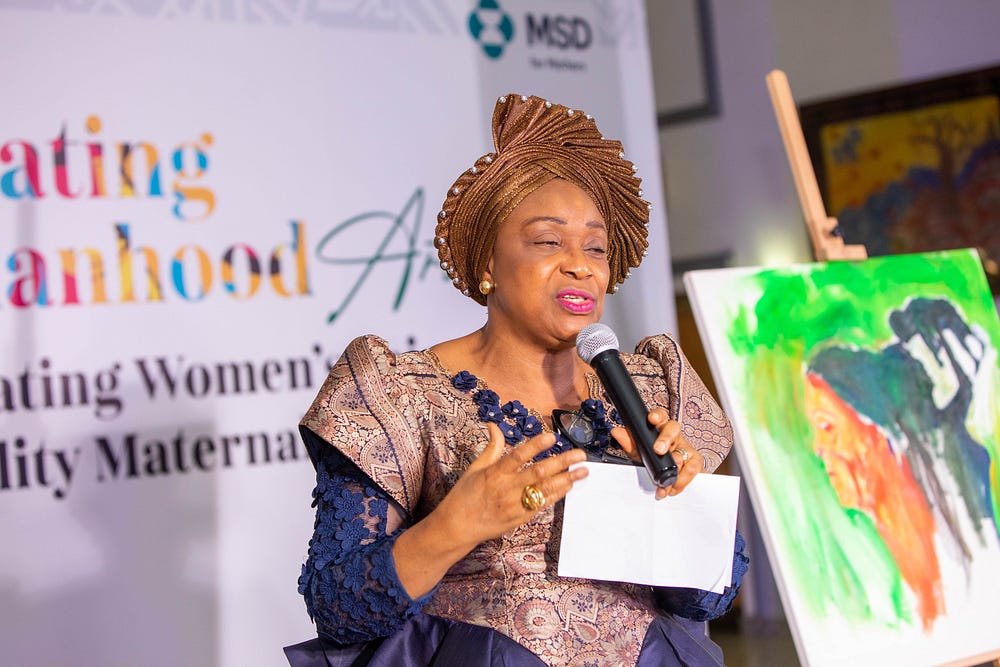
The Director of Health Planning Research and Statistics at the Federal Ministry of Health, Dr Ngozi Azodo re-emphasised the strength of women and the importance of the collective responsibility of every woman to create opportunities and stand up for each other “Let’s remember and remind ourselves how powerful we are, and how powerful we can make other women around us and together we will change ourselves, change our environment, change our community, and change our world.”
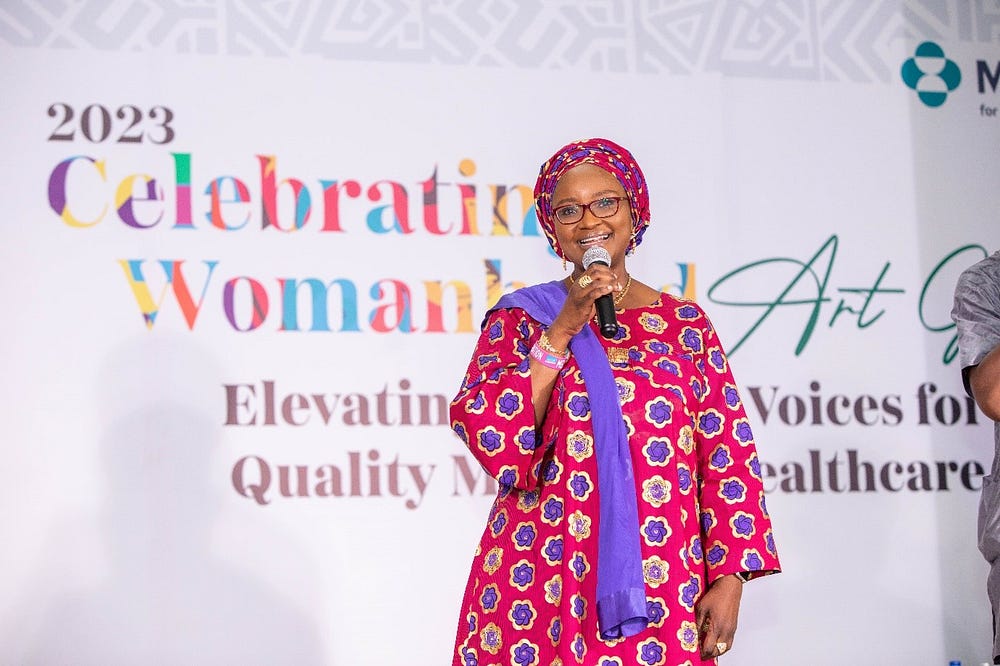
Linking maternal healthcare to cancer outcomes, the First Lady of Kebbi State and CEO of Medicaid Cancer Foundation, said that “the unique opportunity that the maternal health clinics across our nation offer for our women to improve women’s cancer outcomes. The maternal health clinics particularly the family health clinics, are an opportunity for a lot of us to get cervical cancer screening, whereby this hasn’t been well established in our health system and it’s not something that most women even know about”.
Everyone should be part of the conversation
The art gala also showcased incorporated performing art as a powerful tool to promote the importance of elevating women’s voices by inspiring and motivating action towards gender equality.
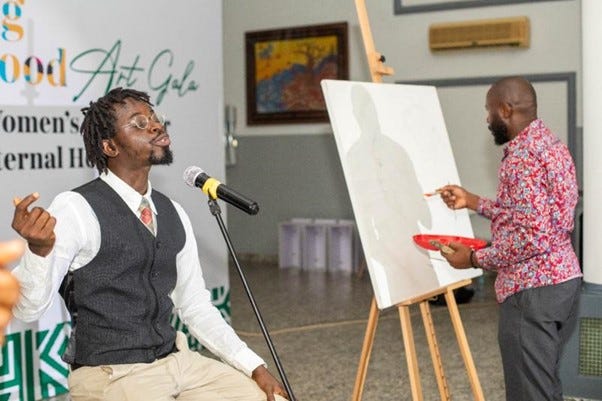
Pariolodo, from the Abuja Literary Society (ALS) shared his spoken word performance titled “Into the Heart of a Broken Place,” taking guests into the heart of the complexities of womanhood, while Mangai a visual artist simultaneously provided a visual interpretation of the spoken word performance.
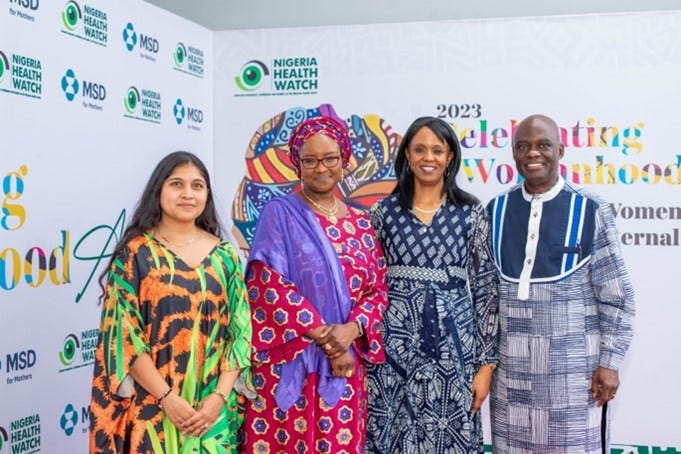
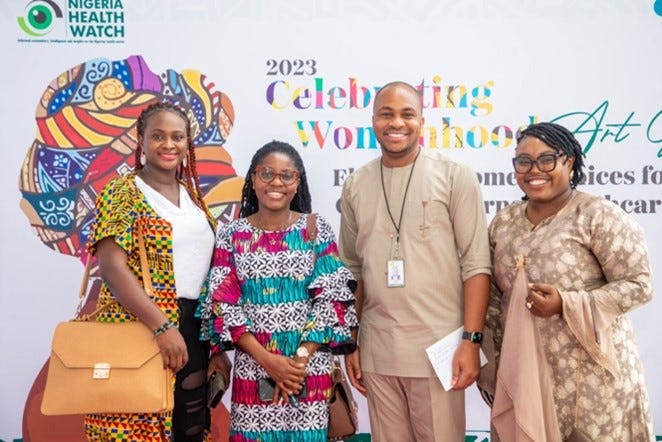

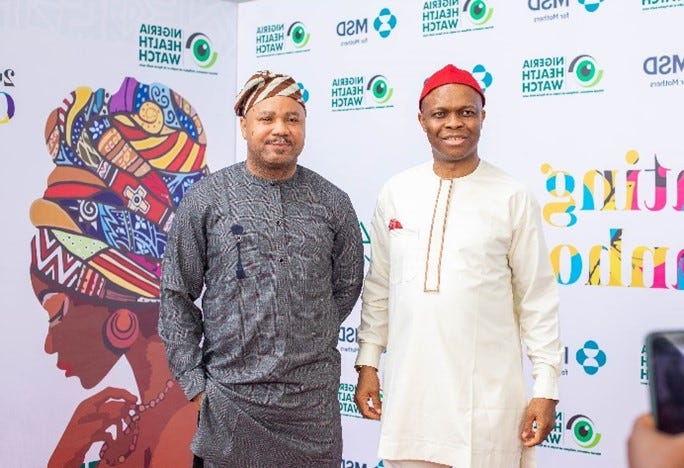
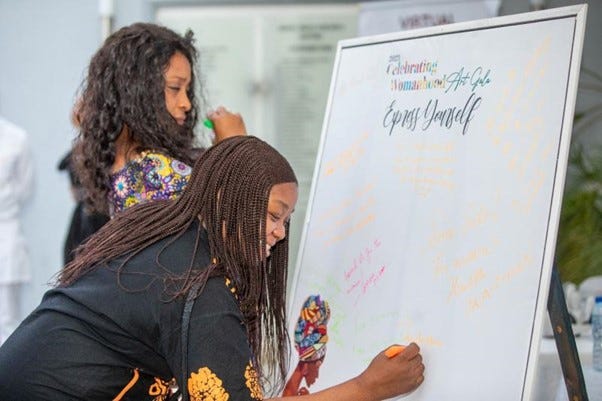
We must all be committed to the cause of improving maternal health in Nigeria and in the words of Iyadunni Olubode: “When women speak, let us listen, share, reflect and collectively act to ensure that no more Nigerian women have to die while giving life” for if we do not listen to women’s voices, we are missing half the story.
MSD for Mothers is MSD’s global initiative to help create a world where no woman has to die while giving life. Applying MSD’s business and scientific resources, MSD for Mothers works with grantees and collaborators to improve the health and well-being of women during pregnancy, childbirth and the months after. MSD for Mothers is an initiative of Merck & Co., Inc., Rahway, NJ, USA. For more information, visit www.MSDforMothers.com.”
[ad_2]
Source link

